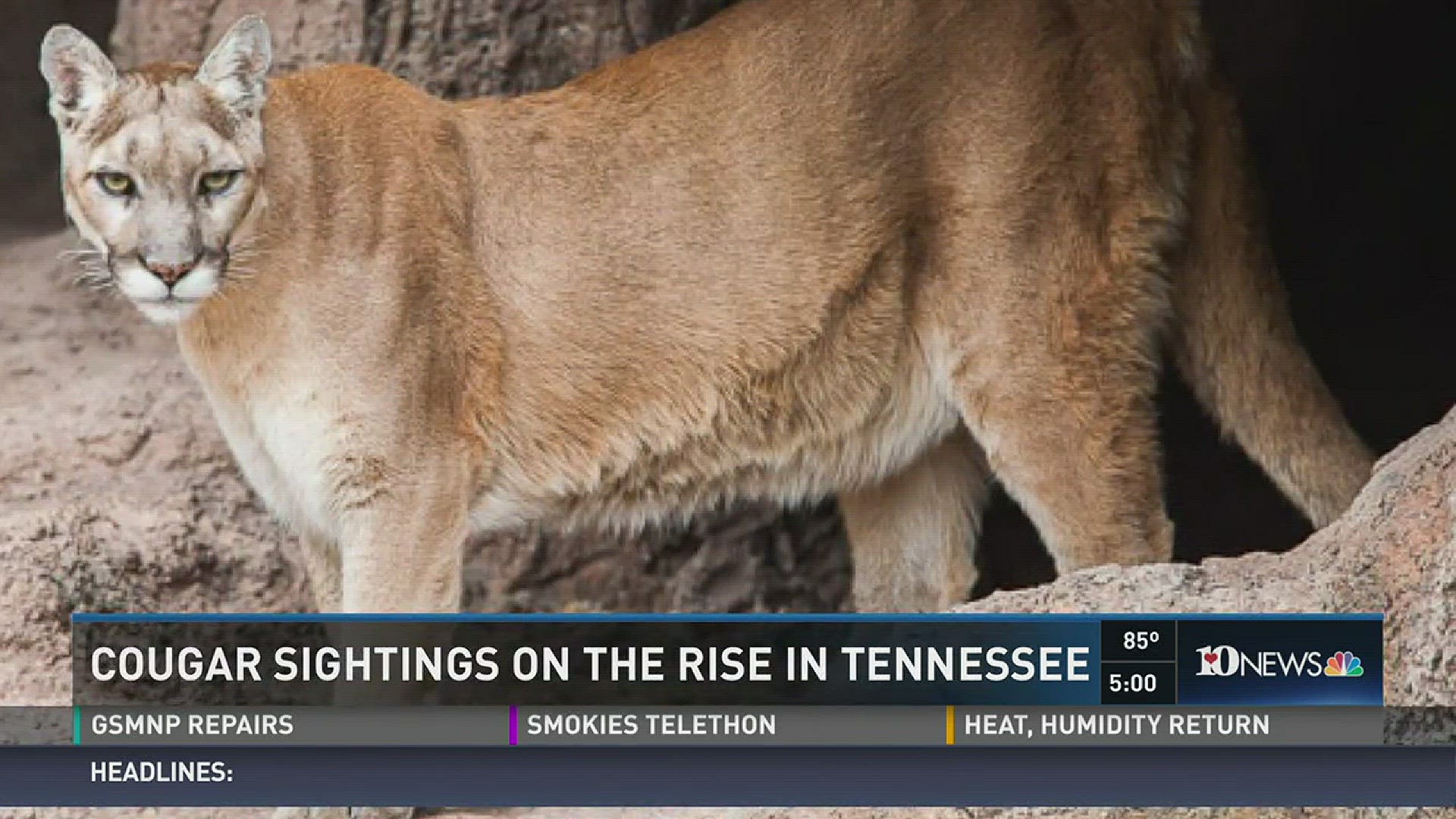Cougars are back in Tennessee, and wildlife officials believe they are here to stay.
There have been seven confirmed sightings of the big cat in Middle and West Tennessee since September 2015. The most recent was earlier this month on a trail camera in Humphrey County, the site of four other recent sightings. None have been confirmed in East Tennessee.
"Cougar sightings are definitely on the rise," Doug Markham, communications director at the Tennessee Wildlife Resources Agency said. "That's because Tennessee hasn't experienced them since they were here originally almost 100 years ago."
In September 2015, TWRA confirmed the first cougar sighting in the state since the early 1900s.
Since then, sightings have become more prevalent -- mostly in Western and Middle Tennessee.
"We've had a lot of people report they've seen cougars through the years, but we've never been able to verify. We finally have verified it through trail camera," Markham said.
It is possible that just one cat could be responsible for multiple sightings, since cougars can travel over long distances.
The cougars now showing up in Tennessee are western cougars, which are well established on the west coast of the United States, western Canada, and Mexico. Wildlife experts believe the big cats are migrating east, and a few of them have crossed the Mississippi River and into our state.
The eastern cougars, which once roamed the hills of Tennessee, are now extinct, wiped out in the early 1900's to hunting and loss of habitat.
Cougars are predatory carnivores, but they are also shy, nocturnal creatures.
TWRA says residents in East Tennessee should not be concerned for now; they expect the next decade to stay cougar-free on this side of the state.
MORE: TWRA info on cougars
Now that they are here, the cougars are protected. It is illegal to kill a cougar in the state except in a case of imminent threat of life and injury or if the animal is causing property damage.
Cougars, also called mountain lion, pumas, and catamounts, are shy and solitary animals. They are nocturnal, and have large territories.
It is very unlikely that you would encounter a cougar in the wild, but if you do, experts say not to run away because it could trigger them to chase you and attack. Instead, make yourself seem as large as possible and make lots of noise.
If there are pets or children with you, pick the up. They have a tendency to run and appear more vulnerable than you and could become targeted as prey.
If the animal attacks, fight back, and do not play dead.
If you see a cougar or evidence of one, you should contact TWRA immediately and report it.

